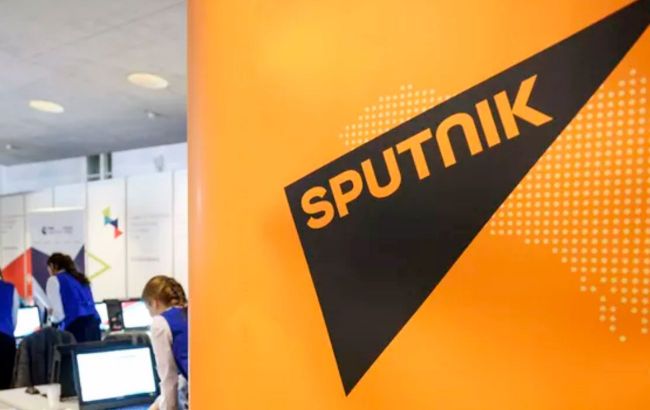Russian propaganda agency Sputnik faced cutbacks due to sanctions
 Sputnik agency (photo: Russian media)
Sputnik agency (photo: Russian media)
The Russian propaganda agency Sputnik is reportedly closing its branches or significantly reshaping its operations due to sanctions, according to The Insider.
Sputnik offices are reportedly closing en masse in Europe. According to one employee, only radio stations remain in some locations. The agency's websites are no longer available.
"In the eastern and western parts of Europe, where Sputnik had offices, they have closed down, except for Austria, Germany, and Switzerland. But these are radio stations, and there are no separate websites for them. The closure of the office in Georgia is next in line. Legal actions have started there. Sputnik in Armenia may be closed in the near future, but for now, they are operating as usual," said one of the Sputnik employees.
According to another source, the official last working day for some employees in the Sputnik branches that are closing in Europe was October 11.
"Some employees are offered the option to switch to other branches or work on other projects within the MIA "Russia Today," which owns Sputnik," the source mentioned.
Why is the agency downsizing
The closure of Sputnik offices is attributed to several reasons, including financial difficulties. Assets and accounts have been frozen, preventing the agency from conducting financial and economic activities and paying salaries to employees.
There is also a technical reason - Sputnik's websites are not issued encryption certificates, which means they do not operate using the secure protocol (HTTPS) in most global browsers, except for Russian ones. Furthermore, Sputnik's websites are blocked in many countries. Another reason is related to staffing.
"There are personnel issues. For example, in Kazakhstan and Kyrgyzstan, most journalists are not willing to 'serve the Russian propaganda machine in its fight against Ukraine,'" the sources added.
Blocking Russian media in Europe
After Russia's invasion of Ukraine, Moldova blocked the Sputnik Moldova website and halted the radio broadcasts of the propagandists within the country in early March.
The restrictions apply to projects of Sputnik and Russia Today. The websites of these media outlets are inaccessible to European users on the Google search engine. Their channels on YouTube and platforms owned by Meta (Facebook and Instagram) are subject to censorship.
Furthermore, after the start of the war, leading propaganda channels ceased broadcasting on the HotBird satellite, which covers most of Western Europe. It used to carry international versions of Pervyi Kanal and Russia 1 (RTR-Planet channel).
A way out of the situation
The Russia Today agency is redirecting its resources and focus towards countries in Africa, Asia, and other countries considered friendly, such as Serbia. They have allocated a significant sum for this purpose.
"Russia Today will soon build a television complex and a newsroom in Moscow for Serbian-language broadcasting. They have been allocated more money once again, two billion rubles," one of the sources revealed.
In early October, Sputnik radio began broadcasting in Arabic in Lebanon. It has taken over the frequency previously used by BBC Arabic, which left the country.
Sputnik, in the form of a radio station, is also expanding its broadcasts within Russia, utilizing the frequencies of the liquidated Luna Moskvi radio station, and it is extending its presence in the occupied territories of Ukraine.
As previously reported, a ship named Pavel Derzhavin exploded in the temporarily occupied Crimea. The Ukrainian Armed Forces are investigating the incident.
We also reported that Russian forces struck in Kharkiv. A fire broke out at the site of the shelling, and there are casualties.

